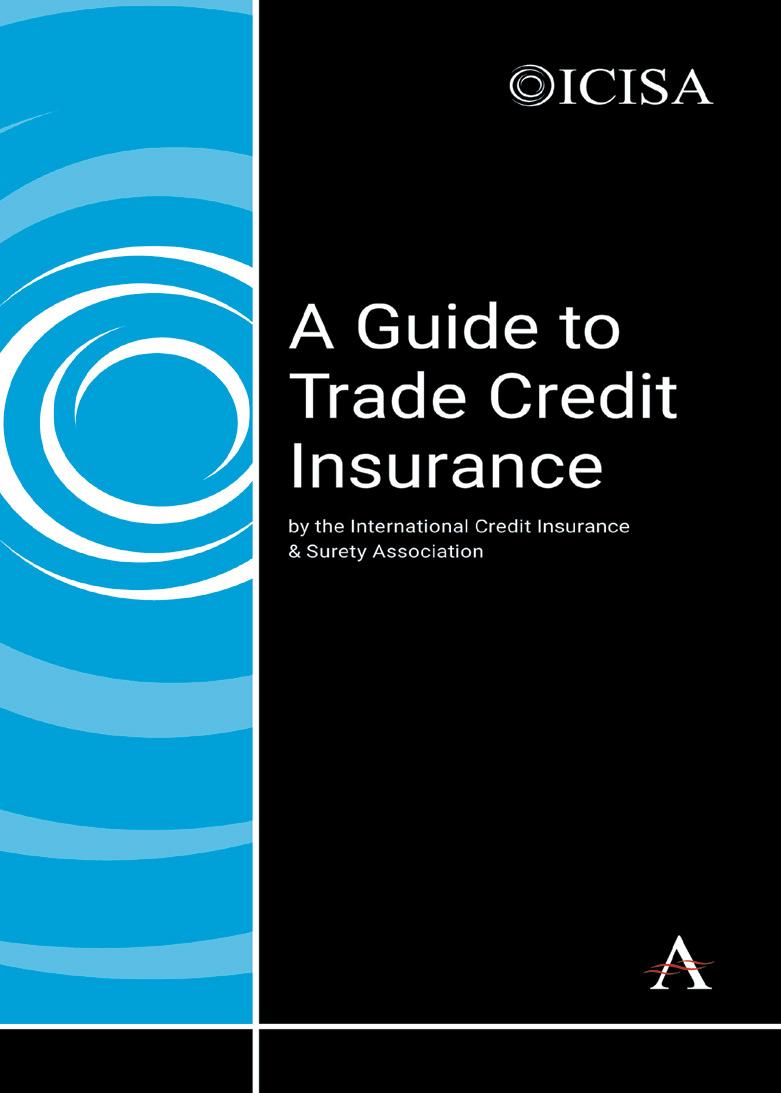
8 minute read
Blockchain Working Group
You are taking over from Patrice during a time of change – most of our members highlighted that ICISA membership is valuable mostly for the various types of meetings it organizes. Looking at what we’ve learnt from the current pandemic, the future will probably be different – with meetings that might take place online etc. How do you see ICISA and its events post Covid19?
As mentioned above, the ICISA Week is the core of the future meeting concept. During an entire week, members will attend both committee meetings and the Annual General Meeting. It’s a more sustainable way of meeting, reducing travel and cutting CO2 emissions, as well as ensuring members gain the most value possible from attending in person. With the new structure, the meetings will be more efficient as the same delegate could cover everything. Nevertheless, everyone who wants to join is still welcome, of course. We hope that companies can better manage the tradeoff between their willingness to use networking opportunities and corporate travel policies.
Advertisement
Although we meet physically once a year, there is always an option for virtual alternatives. If a personal meeting cannot take place or people are not able to attend, we will switch to a short-video format. I.e., for the committee meetings we plan to have the committee chairs together “on stage” to present their core activities. Interactive parts like discussions with the dialed-in members and/or Q&A sessions will follow. We will not provide the recorded meeting in its full length on our website. This might be too long and would not get the attention it deserves.
The new ICISA Office in Amsterdam has great facilities for meeting the Secretariat, or to be used as an “external lounge” during a layover at Schiphol Airport. Members are highly recommended to visit the new office of ICISA. Moreover, the new office can also be booked for working groups or committee meetings.
You are known for being tech-minded. Is this a topic that you would like to see ICISA pay more attention to? If so, in which areas?
During our trip to Zurich, we listened to our members carefully and we often heard the term “platform”. This gave us the idea that ICISA should become a center for industry linked information, methodology and technology, a meeting hub as well as open place for collaboration and a think tank. All this needs technological support of course. This year we made the first necessary but basic steps towards a state of the art video conferencing and collaboration tool, new hardware, customized software-packages and a modern work environment for the Secretariat. For next year, we have allocated a large budget to a new website. It should have incorporated many collaboration features for an easy interaction between members. Finally, a powerful search engine will help users to find easily the information they look for – no matter which device they use.
We also must watch which media-platforms are, or could become part of, our toolkit for promoting Trade Credit and Surety products. The intensity of usage changes quickly among social media platforms. It is important to approach the right target groups by using the right key words in post if you want to get relevant a number of hits for penetrating the information. Both of the above are also important for sharing knowledge e.g. to attract new members via explanatory videos and educate young talents via digital tutorials etc.
The third big thing is data. I think there are few industries like ours, which have such a huge amount of data, but which are often unstructured and therefore unused . The biggest issues are the missing standards. There is no standard for wordings, for reporting, for accumulation, nor identification of risk. This does not mean we need standards for every single of the mentioned categories, but maybe for some. The complexity increases, which leads to uncertainty. Of course, ICISA cannot solve by itself the lack of process time along with missing standardizations as well as the resulting dilemma of uncertainty vs. complexity. This needs an industry-wide approach. However, especially the smaller and mid-size members cannot raise the large amount of resources to develop their own state-of-the-art systems. So, in an ideal world, perhaps there is a role for ICISA in helping to achieve this. This brings me back to ICISA’s core competence: my hope is that the ICISA network is large enough to bring the right people together who can approach the above-mentioned current and future challenges and develop the right solutions for them. This compact volume is a practical guide for anyone interested in Trade Credit Insurance. The International Credit Insurance & Surety Association (ICISA) presents an approachable but detailed guide written collaboratively by carefully selected industry experts. The guide describes the ‘lifeline’ of the credit insurance product, from the initial application stage to the expiration phase of the policy, including practical use aspects for credit managers. The volume offers compact information on the history of trade, the need for protection against trade credit risks, and solutions offered by credit insurance providers. The focus is on short term credit, including whole turnover policies and single risk policies.
A Guide to Trade Credit Insurance
A practical and accessible industry-wide reference on Trade Credit Insurance, written by a team of industry experts.
Readership
Suitable for anyone interested in Trade Credit Insurance, from credit managers to policymakers.
Key selling points
• Collaboration of a diverse group of experts from top organisations around the world • Written in an approachable style, accessible to the non-specialist • Includes extended glossary of key terminology • Includes a list of relevant resources for further reading
Content
Foreword; Introduction; Disclaimer; 1.What is trade?; 2. What is trade credit insurance?; 3. Product types; 4. Risk types; 5. Typical set-up of a trade credit insurance contract; 6. Premium, the price for cover; 7. Day-to-day policy management; 8. Buyer risk underwriting in trade credit insurance; 9. Debt collection; 10. Imminent loss and indemnification; 11. Renewal, expiry, termination of a policy; 12. Single risk business; 13. The single risk insurance market: Private and public players; 14. Reinsurance of Trade Credit Insurance; Trade Credit Insurance resources; Glossary of trade credit terminology
About the Author(s) / Editor(s)
The International Credit Insurance & Surety Association (ICISA) brings together the world’s leading companies providing trade credit insurance and surety bonds. ICISA promotes technical excellence, industry innovation and product integrity, as well as addressing business challenges generated by new legislation.
Where to order my copy?
The book can be ordered from Barnes&Noble and Bol.com.
ESG Integration into insurance business
By Raluca Ezaru, External Relations & Information Officer, ICISA
How can we meet the needs of the present without compromising the ability of future generations to meet their own needs? This is the question people living today need to answer. A question that previous generations have largely ignored, but which no longer waits for us. With all seemingly undisputable truth of climate change issues, overconsumption, demographic change or degradation of the environment, can we still look ahead for a bright, sustainable future? Will our generation make a change in the way we are currently living and really contribute to a more sustainable world? Can we reduce our impact on the world and ensure that the future generations will receive in their hands a world that can still sustain them in the long term?
We should probably each of us question ourselves on this matter, but more important, companies around the world should also consider the question of “how sustainable are we?”. A more specific and measurable way to answer this question is to look at how ESG (Environmental, Social and Governance) principles are integrated within businesses. Reinsurers have highlighted the potential impacts of climate change for longer than many other industries, particularly given its impact on natural catastrophe frequency and impact. Still, the topic of sustainable development became more visible among financial sector and insurers since 2012, when the UN launched the “Principles for Sustainable Insurance”.
ESG regulation has largely avoided issues related directly to risk management and focused more on governance and reporting, however, the first principle within the UN principles states that “We will embed in our decision-making environmental, social and governance issues relevant to our insurance business”.
In the beginning of 2021, ICISA questioned its members on the topic of ESG. We feel that in the recent months, the interest on this topic increased and that insurance companies look with more attention at it. In the past weeks, I’ve talked with several ICISA members from across the Credit Insurance and Surety sectors and tried to gain a better understanding of this topic for myself. Besides the growing, but still foggy, emphasis from regulators on sustainability, the evolution of how ESG is integrated into insurance business shows promise.
A study conducted in 2018 by UN Environment’s Principles for Sustainable Insurance found that a vast majority of surety bond underwriters consider 12 out of the 15 ESG risks surveyed when evaluating infrastructure projects. Some of the ESG risks questioned were: pollution, biodiversity loss, greenhouse gas emissions (E), human rights, working conditions, lack of community security / health (S), corruption, unethical practices (G) and more.
All of those I spoke to lately said their companies have particular teams dedicated to looking at ESG in their company. Most of the time, the people overseeing ESG activities are integrated within Corporate Social Responsibility (CSR) functions, or a specific department that focuses on sustainability. For instance, the sustainability department of Zurich has about 80 people, while Liberty Mutual has appointed a Chief Sustainability Officer who reports directly to the CEO.







